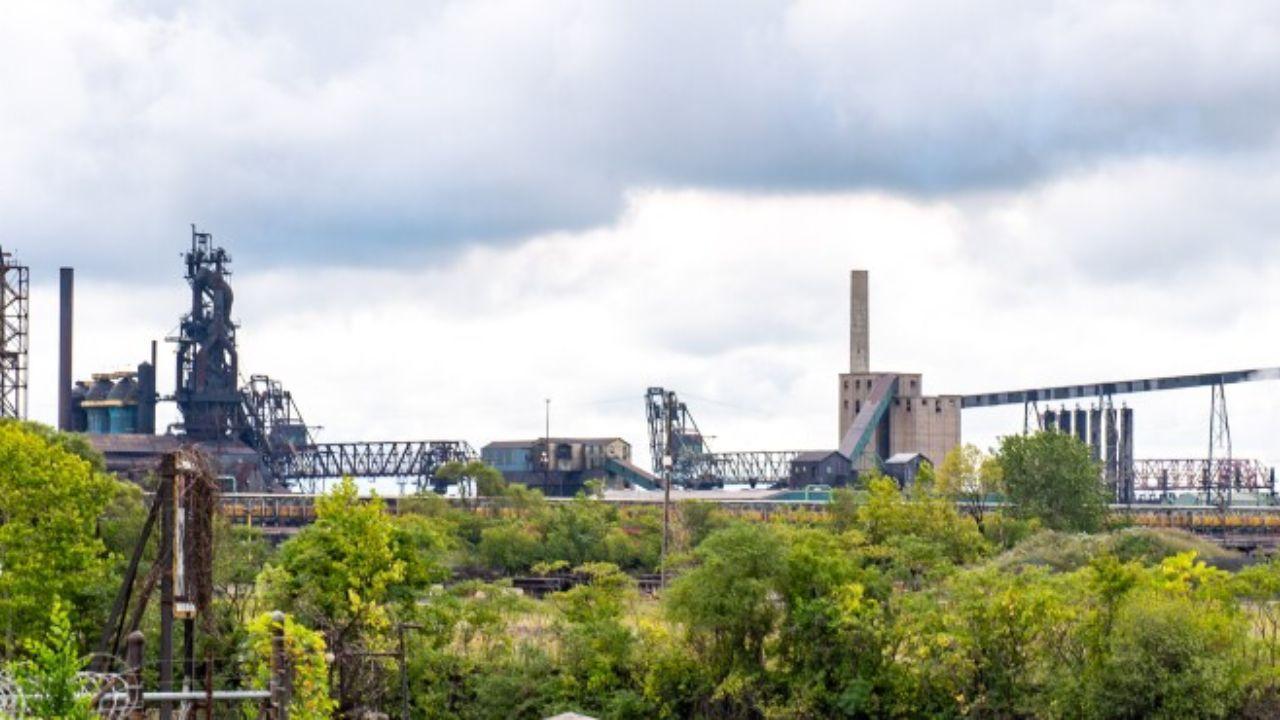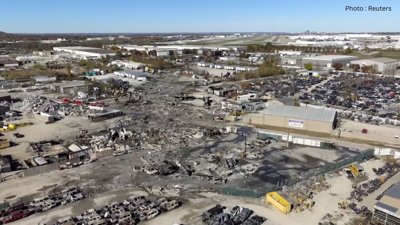
Post by : Avinab Raana
Photo : X / Bloomberg Law: Environment
DTE Energy challenges court ruling
DTE Energy has announced its intention to appeal a recent court decision that found its coke battery unit in violation of Clean Air Act permitting requirements. The move reshapes the legal battle over emissions accountability and sets up a high-stakes penalty phase starting mid-September. With environmental integrity and regulatory compliance on the line, the appeal signals a pivotal moment for the utility and its commitment to clean energy standards.
Clean Air Act violations spark scrutiny
At the heart of the dispute lies a determination that the coke battery facility exceeded sulfur dioxide emission limits set in its 2014 permit and failed to submit required environmental reports in both 2018 and 2019. Such breaches intensified scrutiny from environmental regulators and spotlighted how critical it is for industrial operators to adhere strictly to Clean Air Act mandates—especially in communities already burdened by pollution.
Appeal underscores legal and financial uncertainty
DTE Energy’s announcement of its appeal lays bare the high stakes. The company conveyed deep uncertainty over the outcome and its potential financial repercussions. With penalties on the horizon, the unit’s legal team must navigate the intricacies of environmental law amid growing attention from regulators, investors, and the public on the consequences of non-compliance.
Emissions lapse challenges public health priorities
Sulfur dioxide is a known contributor to respiratory illnesses and environmental degradation. The reported excess emissions from the coke battery unit raise serious public health concerns, particularly in nearby communities. The case now forces a broader reckoning: how industrial operations must balance economic activity with environmental responsibility—and how regulatory frameworks can enforce that balance.
What’s at stake in the upcoming trial
The trial, slated for mid-September, will be the first opportunity to quantify the penalties and assess the unit’s mitigation obligations. These may include strict enforcement measures, pollution control upgrades, or even operational constraints. The outcome could set a seismic precedent, influencing how other energy and industrial facilities manage permitting and environmental stewardship.
DTE Energy grapples with subsidiary liability
Though DTE Energy is the parent company, its coke battery unit operates under a separate subsidiary. The legal dispute raises questions about corporate responsibility and liability: To what extent can the parent be held accountable for subsidiary operations? The appeal will likely explore these corporate divisions, testing the boundaries of environmental liability in corporate structures.
The regulatory message and industry reaction
This legal fight echoes across the energy sector as regulators and industry participants watch closely. Should DTE prevail, it might embolden more utility operators to test permit boundaries—on the other hand, a ruling against DTE could invigorate enforcement across industries. The energy and manufacturing communities are tightly focused on the trial’s precedent-setting potential.
Community advocates push for strict enforcement
Environmental advocates and local community groups have long called for tougher enforcement at industrial facilities, especially in areas exposed to disproportionate pollution. For residents surrounding the coke battery site, the appeal isn’t just about court filings—it’s about cleanup, accountability, and safer air. Their voices are poised to shape how DTE responds and what reforms may follow.
Environmental compliance as business imperative
For DTE and similar utilities, environmental compliance is more than legal obligation—it has become integral to operational credibility. Investors, insurers, and customers increasingly expect climate-aware conduct. The outcome of this case will influence how clean energy providers measure success—not just in megawatts or profits, but in environmental stewardship and trust.
Centering environmental regulation in energy policy
Clean Air Act enforcement has long been a barometer of environmental policy effectiveness. This appeal spotlights the ongoing tension between regulation and energy development. Policymakers—state and federal—will be watching how courts interpret permitting obligations. The decision will likely guide future enforcement priorities and legislative intent.
DTE Energy must manage reputational fallout
Beyond regulatory risk, DTE faces reputational consequences. How the company communicates its legal strategy, supports affected communities, and modernizes operations will define its public image. Green credibility isn’t just about court outcomes—it’s about visible, transparent change. The court case may serve as a catalyst for broader internal reforms.
What lies ahead for environmental law cases
The larger trend is clear: environmental litigation is on the rise, with courts acting as critical arenas for pollution accountability. As global pressure mounts for cleaner energy, cases like DTE’s will shape how firms prepare, respond, and defend. Successful appeals may shift legal strategy. Unfavorable outcomes may accelerate investment in cleaner operations.
A crossroad for industry and clean air policy
DTE Energy’s appeal thus stands at a crossroads. The case blends law, corporate accountability, public health, and environmental policy. It tests whether regulatory frameworks can withstand legal pressure, whether industrial interests will adapt, and whether public health can be safeguarded. The ruling, either way, promises to echo across industries and communities.
Accountability in every emission
As DTE Energy prepares to appeal, the message is clear: environmental compliance cannot be shrugged off, and the path forward demands transparency, responsibility, and tough oversight. The court’s response will affirm whether accountability is central to industrial operations—or if enforcement remains rhetoric under the Clean Air Act. For communities, regulators, and industry alike, it’s not just a trial—it’s a test of environmental integrity.
DTE Energy, Clean Air Act, Appeal










Advances in Aerospace Technology and Commercial Aviation Recovery
Insights into breakthrough aerospace technologies and commercial aviation’s recovery amid 2025 chall

Defense Modernization and Strategic Spending Trends
Explore key trends in global defense modernization and strategic military spending shaping 2025 secu

Tens of Thousands Protest in Serbia on Anniversary of Deadly Roof Collapse
Tens of thousands in Novi Sad mark a year since a deadly station roof collapse that killed 16, prote

Canada PM Carney Apologizes to Trump Over Controversial Reagan Anti-Tariff Ad
Canadian PM Mark Carney apologized to President Trump over an Ontario anti-tariff ad quoting Reagan,

The ad that stirred a hornets nest, and made Canadian PM Carney say sorry to Trump
Canadian PM Mark Carney apologizes to US President Trump after a tariff-related ad causes diplomatic

Bengaluru-Mumbai Superfast Train Approved After 30-Year Wait
Railways approves new superfast train connecting Bengaluru and Mumbai, ending a 30-year demand, easi